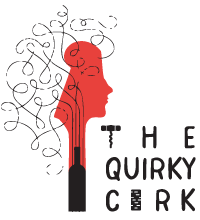Learning about Rózsakő with Szászi Birtok
I’ve had a few wines before from Szászi Birtok and now they’re one of the wineries I routinely try to find when I’m in Budapest. The very first of their wines I had was a Kéknyelű which immediately became one of my favorite grapes. On a not so recent trip, I managed to snag another of their wines: a Rózsakő.
Szászi Birtok
Owned and operated by Endre Szászi and his wife, Szászi Birtok is one of the oldest certified organic vineyards in Hungary. He farms 24 hectares on the southern slopes of Mount Saint George, Szigliget, Hajagos, and Lesencetomaj where he grows a wide range of grapes including: Riesling, Pinot Gris, Kéknyelű, Rózsakő, Zeus, Zenit, Furmint, Cserszegi Fűszeres, Muscat Ottonel, Hárslevelű, Csókaszőlő, Cabernet Sauvignon, Cabernet Franc, and Pinot Noir.
Our philosophy is simple, just like our connection to the world surrounding us: to produce something of beauty and permanent value, while maintaining ethical farming practices. This is why we are firm believers of organic farming and sustainable development. Our mission is to tell the story of this small corner of the Earth in liquid form, and to do it with ecological approaches, the ethical use of nature, and a combination of traditional and new oenological practices.
In addition to their commitment to organic farming, Mount Saint George is a special place for them. Both Szászi and his wife hail from this part of Badascony. They grew up here, reveling in the nature and wine traditions with their families. Both delight in sharing this area with others; even if it’s only in a glass of wine.
Szászi Birtok Badacsonyi Rózsakő, 2020
I, of course, love a weird and less well-known grape. Rózsakő definitely fits that description! A relatively new grape, Dr. Ferenc Királycreated it in 1957 by crossing Kéknyelű (love this grape) and Budai Zöld. While originally known as Badacsony 36, its name as we now know it, came from rózsakő, a flat basalt stone found on Badacsony Hill. Rózsakő grows only in Balaton where it thrives on volcanic soil. It is not, however, widely planted with less than 20 hectares.
The Szászi Birtok Badacsonyi Rózsakő poured a brilliant, pale straw color. The nose was reminiscent of grapefruit peel and apple blossoms with a trace of crushed quartz and a broody wisp of flinty smoke. The palate surprised me as it gave a more appley character with a mélange of red and golden apples and a squeeze of fresh lemon. Medium-low acidity, medium-bodied, and a relatively short finish.
And apparently I completely forgot to take a picture of this! So, we have a stock photo.
I previously tasted their 2017 vintage which I found much more expressive than the 2020. Perhaps this is a grape that likes a little extra time in the bottle? Something to remind myself of should I ever get my hands on another bottle!
Please Help Turkey and Syria!
Turkey and Syria are still in desperate need of help after the horrific earthquakes that have decimated large areas of Turkey’s south east and northern Syria, please consider donating to one of the relief efforts if you are able:
Animal rights organization Haytap is helping animals affected by the earthquake, and displaced people who need a place to stay with their pets. Other animal-focused groups such as Dört Ayaklı Şehir (Four-Legged City) and Work Animals Rescue Foundation, are also helping farm animals, street animals, and pets.
Donate to civil society groups working on the ground to provide immediate relief and medium- to long-term recovery to survivors via UK-based Turkey Mozaik Foundation or US-based Turkish Philanthropy Funds.
World Central Kitchen provides funds and food to those still living in tents in the affected areas.
To support rescue efforts in Syria, donate to White Helmet and SAMS.
Field Ready Türkiye (Sahaya Hazır İnovasyon Derneği) is a team of engineers working in Gaziantep, Turkey, and northwest Syria who make cheap, low-tech airbags for search and rescue from buildings which have collapsed. “If we move fast they can make more,” a good friend who previously worked with the team writes. “The workshops in Syria also have vast experience of fixing essential medical equipment, and making insulated shelters – both greatly needed right now”



